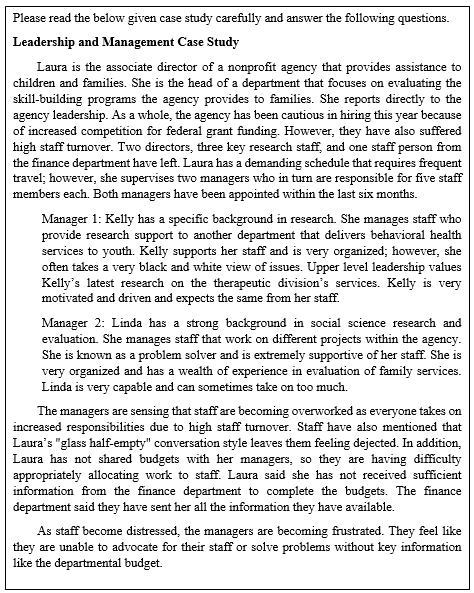How Does Management Study Enhance Leadership Skills?
Management study can enhance leadership skills by providing individuals with the necessary knowledge and tools to effectively guide and inspire teams. Through a comprehensive understanding of management principles and practices, individuals can develop key competencies such as strategic thinking, communication, decision-making, and problem-solving.
This allows them to navigate complex business environments, drive organizational success, and cultivate a positive work culture. By continually learning and applying management concepts, aspiring leaders can develop and refine their leadership abilities, enabling them to effectively lead and motivate their teams towards achieving common goals and objectives.

Credit: www.unomaha.edu
Benefits Of Studying Management
Enhancing leadership skills and developing strategic thinking are just a couple of the many benefits that studying management can bring. Whether you are a current or aspiring business leader, gaining knowledge in management principles and practices can help you lead your team effectively and drive your organization towards success. Let’s delve into these two key benefits in detail:
Enhancement Of Leadership Skills
Studying management equips individuals with essential skills that are crucial in leading a team with confidence and competence. Effective leaders are not merely born; they are shaped through knowledge and practice. By studying management, you can:
- Acquire Communication Skills: Successful leaders are adept at communicating their ideas, instructions, and feedback clearly and convincingly to their team members.
- Develop Decision-Making Abilities: Management studies provide insights into effective decision-making techniques, allowing leaders to make better choices that benefit their organization.
- Nurture Team-building Skills: A strong leader understands the importance of building cohesive teams. Management education provides a foundation for developing teamwork and collaboration.
- Hone Problem-Solving Skills: Leaders encounter challenges and obstacles on a regular basis. Through studying management, you can enhance your problem-solving abilities and effectively tackle complex issues.
Overall, studying management enhances leadership skills by equipping individuals with the necessary tools to inspire and guide their teams effectively.
Development Of Strategic Thinking
Strategic thinking allows leaders to have a broad perspective, enabling them to make informed decisions that align with their organization’s goals. When you study management, you can:
- Master Business Analysis: By understanding how to analyze market trends, competitor strategies, and financial reports, leaders can develop a strategic mindset that helps them identify opportunities for growth and tackle threats proactively.
- Formulate Effective Strategies: Management education provides frameworks and methodologies to develop comprehensive business strategies tailored to an organization’s unique needs and challenges.
- Adapt to Change: The business landscape is ever-evolving, and leaders need to be adaptable. Studying management equips you with the ability to anticipate and adapt to changes in the market or industry.
When leaders possess strategic thinking skills, they can steer their organizations towards competitive advantages and long-term success.
Understanding Of Organizational Behavior
Understanding organizational behavior is crucial for enhancing leadership skills through management study. By comprehending the dynamics of how individuals and groups function within an organization, managers can develop effective strategies to motivate, delegate, and communicate, leading to greater productivity and success.
Understanding the dynamics of organizational behavior is crucial for enhancing leadership skills. It provides insight into the different factors that influence the functioning of an organization, including how individuals and groups interact, communicate, and work together towards common goals. By comprehending organizational behavior, managers can effectively lead their teams, foster a positive work culture, and achieve exceptional results.
Insight Into Team Dynamics
Team dynamics play a pivotal role in the success of any organization. By studying management, leaders gain the necessary knowledge and skills to navigate the complexities of team dynamics. They learn about the various roles individuals assume within a team, how to encourage collaboration and cohesion, and how to motivate team members to perform at their best. Understanding team dynamics enables managers to create a harmonious work environment where everyone feels valued and motivated to contribute their expertise.
Effective Communication And Conflict Resolution
Effective communication is the lifeblood of any organization. Managers who study management develop essential communication skills that allow them to articulate their visions, goals, and expectations clearly. They also learn to actively listen and understand the needs and concerns of their team members. Additionally, studying management equips leaders with conflict resolution strategies, enabling them to address conflicts and disagreements within their teams promptly and constructively. These skills promote open and honest communication, enhance productivity, and foster a positive work environment.
Learning From Successful Leaders
Discover how studying management can enhance your leadership skills by learning from successful leaders. Gain valuable insights and strategies for effective leadership from those who have achieved remarkable success in their respective fields. Unlock your potential and become a better leader through the wisdom and experience of industry trailblazers.
Successful leaders possess a unique set of skills and experiences that make them exceptional in their respective fields. By studying their management techniques and adopting their best practices, aspiring leaders can enhance their own leadership abilities. This article explores case studies of management successes and the valuable lessons that can be gleaned from them.
Case Studies Of Management Successes
Examining real-life examples of management successes provides valuable insights into effective leadership strategies. One such case study involves Steve Jobs, the co-founder of Apple Inc. Jobs was known for his visionary leadership, pushing boundaries and thinking outside the box. His ability to foster innovation and create groundbreaking products revolutionized the technology industry. Through studying Jobs’ approach to management, aspiring leaders can learn the importance of driving creativity and challenging the status quo.
Another noteworthy case study is that of Jack Welch, the former CEO of General Electric (GE). Welch is celebrated for his transformational leadership style, which propelled GE to immense success during his tenure. By focusing on performance and accountability, Welch transformed the company into one of the most admired and valuable in the world. Aspiring leaders can learn from Welch’s emphasis on setting high expectations, fostering a culture of continuous improvement, and aligning organizational goals with individual performance.
Adopting Best Practices
Studying successful leaders goes beyond merely learning about their achievements; it also involves understanding and adopting their best practices. One best practice to consider is effective communication. Leaders like Elon Musk, CEO of Tesla and SpaceX, emphasize the importance of clear and transparent communication. By ensuring that goals, expectations, and feedback are effectively communicated, leaders can foster collaboration, minimize misunderstandings, and inspire their teams to achieve exceptional results.
Another best practice is the value of delegation. Warren Buffett, the renowned investor and CEO of Berkshire Hathaway, is a master of delegation. He understands the power of leveraging the strengths and expertise of his team members, allowing him to focus on strategic decision-making. Aspiring leaders can learn from Buffett’s ability to empower his team and trust their capabilities, ultimately leading to enhanced productivity and efficiency.
Overall, learning from successful leaders through case studies and adopting their best practices plays a crucial role in developing effective leadership skills. By examining their approaches and techniques, aspiring leaders can gain valuable insights and apply them to their own management style, thereby enhancing their ability to lead and inspire others.

Credit: www.youtube.com
Exploring Different Leadership Styles
A good leader understands that leadership is not a one-size-fits-all approach. Different situations call for different leadership styles to effectively manage a team and achieve success. In this section, we will explore three common leadership styles: Autocratic, Democratic, and Laissez-Faire.
Autocratic
An autocratic leader takes charge and makes decisions without consulting their team members. They have full control and authority over the decision-making process. While this leadership style may seem restrictive to some, it can be beneficial in situations where quick decisions need to be made, and there is a need for efficiency and discipline. The autocratic style ensures clear direction and minimizes confusion, resulting in the achievement of goals in a timely manner.
Democratic
A democratic leader encourages the participation and input of their team members in the decision-making process. They value team collaboration, respect individual opinions, and foster an inclusive work environment. This leadership style promotes teamwork, creativity, and diverse perspectives. In situations where creative problem-solving and innovation are essential, a democratic leadership style can maximize employee engagement and morale.
Laissez-faire
The laissez-faire leadership style is characterized by a hands-off approach, where leaders give their team members maximum freedom and independence to make decisions. They provide minimal guidance and allow employees to take ownership of their work. This style is effective when team members are experienced, skilled, and self-motivated. It fosters a sense of empowerment, encourages initiative, and promotes personal growth. However, it may lead to a lack of structure and direction if team members require more guidance.
The success of a leader is not solely determined by their leadership style, but also their ability to match the style with the specific situation at hand. Here are some factors to consider when choosing the appropriate leadership style:
| Situation | Recommended Leadership Style |
|---|---|
| Urgent decisions | Autocratic |
| Creativity and innovation | Democratic |
| Experienced and self-motivated team | Laissez-Faire |
| Complex problem-solving | Democratic |
In conclusion, understanding and adapting to different leadership styles enables managers to effectively lead their teams. By matching the leadership style to the situation, leaders can optimize their team’s performance, foster a collaborative work environment, and ultimately achieve success.
Practical Application In Real-world Scenarios
Enhance your leadership skills through practical application in real-world scenarios, using management study as a tool for growth and development. Gain hands-on experience to become an effective leader in any setting.
Hands-on Experience Through Internships
One of the most effective ways to apply management study in real-world scenarios is through hands-on experience gained through internships. Internships offer students the opportunity to work in actual organizational settings, allowing them to put their theoretical knowledge into practice.
By engaging in internships, aspiring leaders have the chance to observe and learn how management principles are implemented in day-to-day operations. They get to witness firsthand the challenges faced by managers and the strategies employed to overcome them.
- Internships provide the platform to work alongside experienced professionals, enabling students to absorb valuable lessons and gain practical skills.
- Through internships, students can take on real responsibilities and contribute to the success of the organization, giving them a taste of what it takes to be an effective leader.
- Internships also offer the opportunity to network with industry professionals, building connections that can be beneficial for future career prospects.
Implementing Management Principles In Day-to-day Situations
Another way management study enhances leadership skills is by enabling individuals to apply management principles in their day-to-day situations, both in their personal and professional lives. Understanding management theories and concepts equips individuals with a toolbox of strategies and techniques to tackle various challenges that may arise.
- Leaders who have studied management gain a deeper understanding of how to effectively communicate, delegate tasks, and motivate their team members.
- They develop the skills to analyze situations, identify problems, and make informed decisions to drive team and organizational success.
- Studying management also helps individuals develop strong problem-solving abilities, enabling them to come up with creative solutions to complex issues.
Furthermore, management study provides individuals with the knowledge to effectively manage their time, prioritize tasks, and handle stress, resulting in improved productivity and well-being.

Credit: www.chegg.com
Frequently Asked Questions On How Management Study Can Enhance Leadership Skills?
How Can Studying Management Improve Leadership Skills?
Studying management can enhance leadership skills by providing knowledge on effective decision-making, team building, and strategic planning.
What Are The Benefits Of Combining Management And Leadership Studies?
Combining management and leadership studies offers a holistic understanding of organizational dynamics, helping individuals develop a versatile skillset to drive success.
How Does The Study Of Management Contribute To Effective Leadership?
The study of management equips leaders with crucial skills such as communication, problem-solving, and adaptability, which are essential for effective leadership in dynamic work environments.
Conclusion
In essence, the study of management offers immense potential in enhancing one’s leadership skills. By delving into various aspects such as decision making, strategic planning, and team management, individuals can develop key attributes required for effective leadership. With its comprehensive approach and practical insights, management study proves to be a valuable resource for aspiring leaders and professionals alike.
Through understanding the principles of management, individuals can unlock their leadership potential and thrive in today’s dynamic and competitive business environment.

